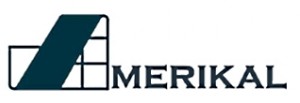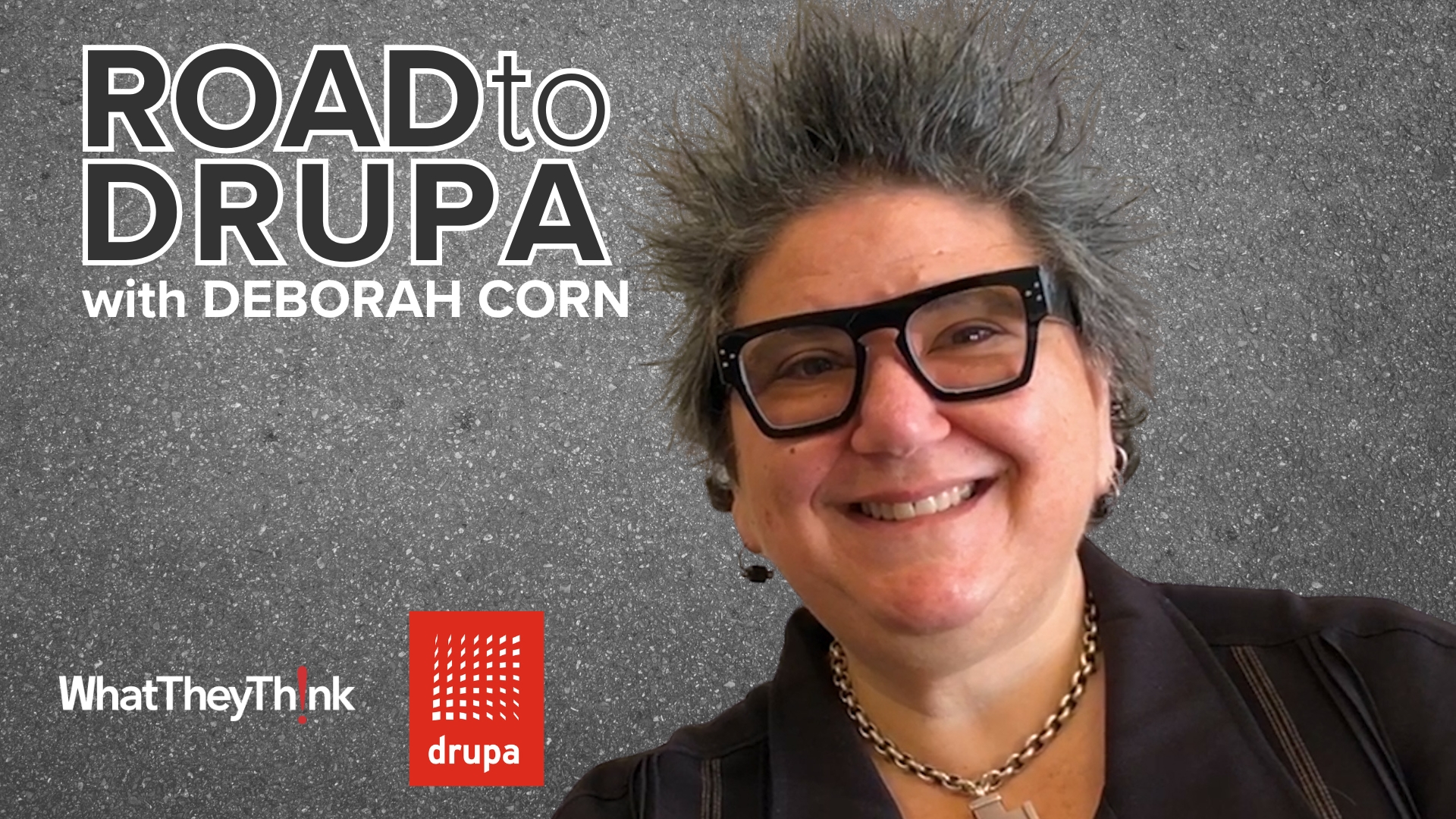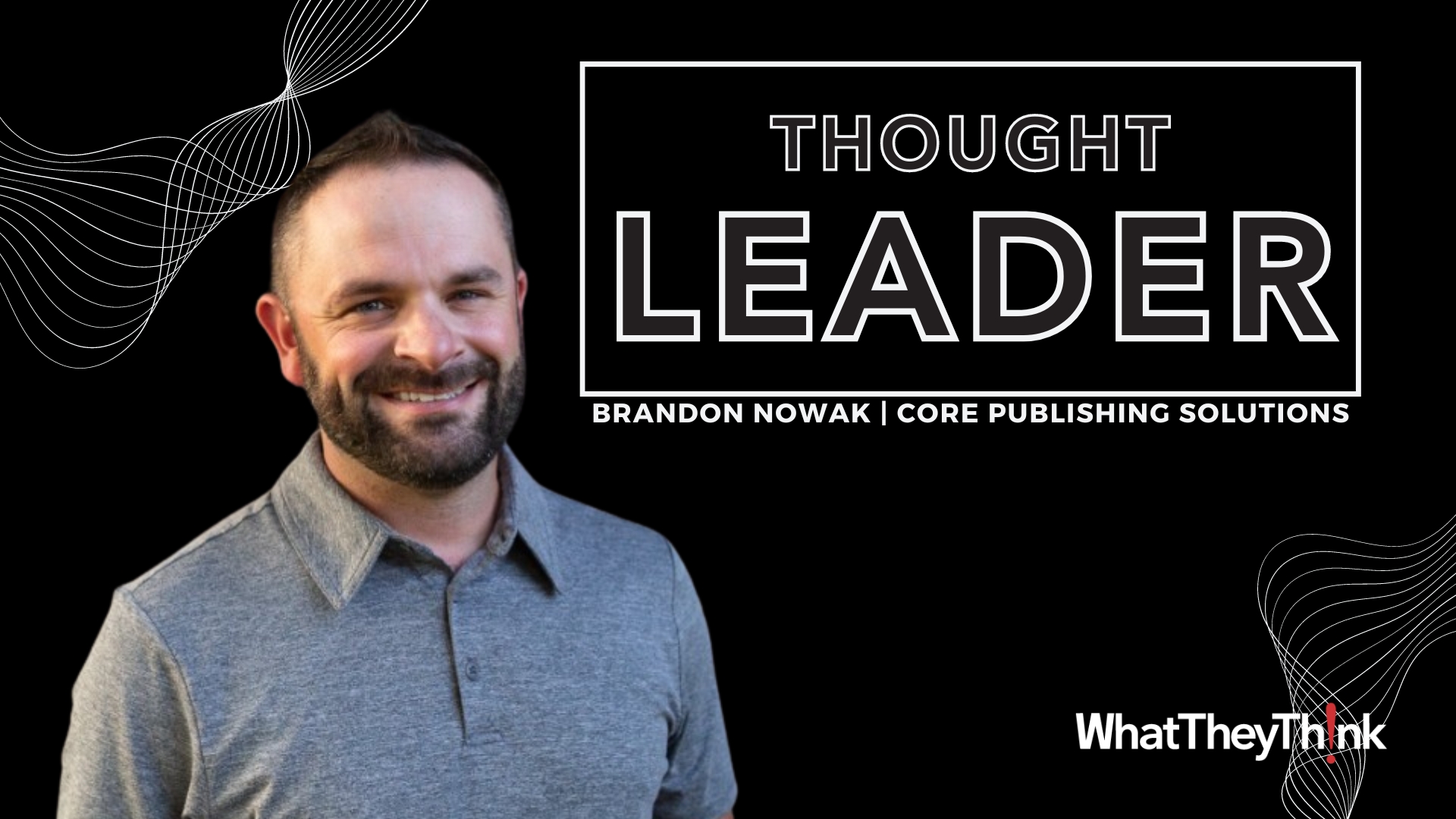 Bob Danielson, Sr., President of Amerikal Products Corporation thinks there’s a better way. By ridding the pressroom of petroleum-based chemicals, a facility can be a healthier place in which to work while being equally productive, if not more so.
Granted, he’s biased. His Waukegan, IL company manufactures a range of pressroom chemicals that are markedly more benign (some would say “greener”) than conventional offerings.
In addition Amerikal’s Genesis fountain solution, which Danielson says is “the first one-step fountain solution to run without alcohol or alcohol substitutes,” the company offers bio-based blanket and roller washers, bio-based metering and chrome roller cleaning/desensitizing products, and other lower-impact products such as anti-skinning and anti-foaming agents and pressroom cleaning solutions.
The term “bio-based” (like most eco-jargon) warrants some definition. In this case, it means that the products are formulated using esters derived from vegetables and fruit, and contain no petroleum distillates or water. “It just doesn’t make sense to ship water all across the country,” Danielson notes. He adds, proudly, that all of the fruits and vegetables used to make his products are grown in the US. (Just a guess on my part, but that pride comes as much from the reducing the product’s carbon footprint as from supporting American agriculture.)
I found it interesting to hear Danielson state that Amerikal’s pressroom chemistry had been developed to eliminate hazardous materials in the workplace rather than to attack the VOC-emission issue. “We wanted to products that do not contain Hazardous Air Pollutants (HAPs), Federal S.A.R.A. Title 313 materials, or California Prop. 65 chemicals,” Danielson said. “The fact that our products also have lower VOCs is really something of a bonus.”
Genesis pressroom chemistries were originally designed for use in food, pharmaceutical, and medical packaging applications, areas in which the toxicity of printing materials is, logically, a concern. But Amerikal’s products also have found their way into the higher end commercial printing environment, and are applicable to any facility running energy curable (UV/EB/Hybrid), heat set, cold set and conventional inks on web and sheet fed presses. Though his company ships worldwide, there is still plenty of room for Amerikal to grow in market share. The market will expand, Danielson notes, as more printing facilities recognize that they can create a healthier workplace by “doing something that is only a little different” than the norm.
Bob Danielson, Sr., President of Amerikal Products Corporation thinks there’s a better way. By ridding the pressroom of petroleum-based chemicals, a facility can be a healthier place in which to work while being equally productive, if not more so.
Granted, he’s biased. His Waukegan, IL company manufactures a range of pressroom chemicals that are markedly more benign (some would say “greener”) than conventional offerings.
In addition Amerikal’s Genesis fountain solution, which Danielson says is “the first one-step fountain solution to run without alcohol or alcohol substitutes,” the company offers bio-based blanket and roller washers, bio-based metering and chrome roller cleaning/desensitizing products, and other lower-impact products such as anti-skinning and anti-foaming agents and pressroom cleaning solutions.
The term “bio-based” (like most eco-jargon) warrants some definition. In this case, it means that the products are formulated using esters derived from vegetables and fruit, and contain no petroleum distillates or water. “It just doesn’t make sense to ship water all across the country,” Danielson notes. He adds, proudly, that all of the fruits and vegetables used to make his products are grown in the US. (Just a guess on my part, but that pride comes as much from the reducing the product’s carbon footprint as from supporting American agriculture.)
I found it interesting to hear Danielson state that Amerikal’s pressroom chemistry had been developed to eliminate hazardous materials in the workplace rather than to attack the VOC-emission issue. “We wanted to products that do not contain Hazardous Air Pollutants (HAPs), Federal S.A.R.A. Title 313 materials, or California Prop. 65 chemicals,” Danielson said. “The fact that our products also have lower VOCs is really something of a bonus.”
Genesis pressroom chemistries were originally designed for use in food, pharmaceutical, and medical packaging applications, areas in which the toxicity of printing materials is, logically, a concern. But Amerikal’s products also have found their way into the higher end commercial printing environment, and are applicable to any facility running energy curable (UV/EB/Hybrid), heat set, cold set and conventional inks on web and sheet fed presses. Though his company ships worldwide, there is still plenty of room for Amerikal to grow in market share. The market will expand, Danielson notes, as more printing facilities recognize that they can create a healthier workplace by “doing something that is only a little different” than the norm.
Commentary & Analysis
Make Your Pressroom Less HAPpy
The conventional pressroom ranks pretty high on the list of places you don’t want to be if you want to avoid exposure to toxic materials. Here's how one company is working to help you keep HAPs, S.A.R.A.Title 13 materials, and Calif. Prop 65 materials out of your workplace.
Let’s face it. The conventional pressroom ranks pretty high on the list of places you don’t want to be if you want to avoid exposure to toxic materials – particularly those derived from petroleum.
 Bob Danielson, Sr., President of Amerikal Products Corporation thinks there’s a better way. By ridding the pressroom of petroleum-based chemicals, a facility can be a healthier place in which to work while being equally productive, if not more so.
Granted, he’s biased. His Waukegan, IL company manufactures a range of pressroom chemicals that are markedly more benign (some would say “greener”) than conventional offerings.
In addition Amerikal’s Genesis fountain solution, which Danielson says is “the first one-step fountain solution to run without alcohol or alcohol substitutes,” the company offers bio-based blanket and roller washers, bio-based metering and chrome roller cleaning/desensitizing products, and other lower-impact products such as anti-skinning and anti-foaming agents and pressroom cleaning solutions.
The term “bio-based” (like most eco-jargon) warrants some definition. In this case, it means that the products are formulated using esters derived from vegetables and fruit, and contain no petroleum distillates or water. “It just doesn’t make sense to ship water all across the country,” Danielson notes. He adds, proudly, that all of the fruits and vegetables used to make his products are grown in the US. (Just a guess on my part, but that pride comes as much from the reducing the product’s carbon footprint as from supporting American agriculture.)
I found it interesting to hear Danielson state that Amerikal’s pressroom chemistry had been developed to eliminate hazardous materials in the workplace rather than to attack the VOC-emission issue. “We wanted to products that do not contain Hazardous Air Pollutants (HAPs), Federal S.A.R.A. Title 313 materials, or California Prop. 65 chemicals,” Danielson said. “The fact that our products also have lower VOCs is really something of a bonus.”
Genesis pressroom chemistries were originally designed for use in food, pharmaceutical, and medical packaging applications, areas in which the toxicity of printing materials is, logically, a concern. But Amerikal’s products also have found their way into the higher end commercial printing environment, and are applicable to any facility running energy curable (UV/EB/Hybrid), heat set, cold set and conventional inks on web and sheet fed presses. Though his company ships worldwide, there is still plenty of room for Amerikal to grow in market share. The market will expand, Danielson notes, as more printing facilities recognize that they can create a healthier workplace by “doing something that is only a little different” than the norm.
Bob Danielson, Sr., President of Amerikal Products Corporation thinks there’s a better way. By ridding the pressroom of petroleum-based chemicals, a facility can be a healthier place in which to work while being equally productive, if not more so.
Granted, he’s biased. His Waukegan, IL company manufactures a range of pressroom chemicals that are markedly more benign (some would say “greener”) than conventional offerings.
In addition Amerikal’s Genesis fountain solution, which Danielson says is “the first one-step fountain solution to run without alcohol or alcohol substitutes,” the company offers bio-based blanket and roller washers, bio-based metering and chrome roller cleaning/desensitizing products, and other lower-impact products such as anti-skinning and anti-foaming agents and pressroom cleaning solutions.
The term “bio-based” (like most eco-jargon) warrants some definition. In this case, it means that the products are formulated using esters derived from vegetables and fruit, and contain no petroleum distillates or water. “It just doesn’t make sense to ship water all across the country,” Danielson notes. He adds, proudly, that all of the fruits and vegetables used to make his products are grown in the US. (Just a guess on my part, but that pride comes as much from the reducing the product’s carbon footprint as from supporting American agriculture.)
I found it interesting to hear Danielson state that Amerikal’s pressroom chemistry had been developed to eliminate hazardous materials in the workplace rather than to attack the VOC-emission issue. “We wanted to products that do not contain Hazardous Air Pollutants (HAPs), Federal S.A.R.A. Title 313 materials, or California Prop. 65 chemicals,” Danielson said. “The fact that our products also have lower VOCs is really something of a bonus.”
Genesis pressroom chemistries were originally designed for use in food, pharmaceutical, and medical packaging applications, areas in which the toxicity of printing materials is, logically, a concern. But Amerikal’s products also have found their way into the higher end commercial printing environment, and are applicable to any facility running energy curable (UV/EB/Hybrid), heat set, cold set and conventional inks on web and sheet fed presses. Though his company ships worldwide, there is still plenty of room for Amerikal to grow in market share. The market will expand, Danielson notes, as more printing facilities recognize that they can create a healthier workplace by “doing something that is only a little different” than the norm.
 Bob Danielson, Sr., President of Amerikal Products Corporation thinks there’s a better way. By ridding the pressroom of petroleum-based chemicals, a facility can be a healthier place in which to work while being equally productive, if not more so.
Granted, he’s biased. His Waukegan, IL company manufactures a range of pressroom chemicals that are markedly more benign (some would say “greener”) than conventional offerings.
In addition Amerikal’s Genesis fountain solution, which Danielson says is “the first one-step fountain solution to run without alcohol or alcohol substitutes,” the company offers bio-based blanket and roller washers, bio-based metering and chrome roller cleaning/desensitizing products, and other lower-impact products such as anti-skinning and anti-foaming agents and pressroom cleaning solutions.
The term “bio-based” (like most eco-jargon) warrants some definition. In this case, it means that the products are formulated using esters derived from vegetables and fruit, and contain no petroleum distillates or water. “It just doesn’t make sense to ship water all across the country,” Danielson notes. He adds, proudly, that all of the fruits and vegetables used to make his products are grown in the US. (Just a guess on my part, but that pride comes as much from the reducing the product’s carbon footprint as from supporting American agriculture.)
I found it interesting to hear Danielson state that Amerikal’s pressroom chemistry had been developed to eliminate hazardous materials in the workplace rather than to attack the VOC-emission issue. “We wanted to products that do not contain Hazardous Air Pollutants (HAPs), Federal S.A.R.A. Title 313 materials, or California Prop. 65 chemicals,” Danielson said. “The fact that our products also have lower VOCs is really something of a bonus.”
Genesis pressroom chemistries were originally designed for use in food, pharmaceutical, and medical packaging applications, areas in which the toxicity of printing materials is, logically, a concern. But Amerikal’s products also have found their way into the higher end commercial printing environment, and are applicable to any facility running energy curable (UV/EB/Hybrid), heat set, cold set and conventional inks on web and sheet fed presses. Though his company ships worldwide, there is still plenty of room for Amerikal to grow in market share. The market will expand, Danielson notes, as more printing facilities recognize that they can create a healthier workplace by “doing something that is only a little different” than the norm.
Bob Danielson, Sr., President of Amerikal Products Corporation thinks there’s a better way. By ridding the pressroom of petroleum-based chemicals, a facility can be a healthier place in which to work while being equally productive, if not more so.
Granted, he’s biased. His Waukegan, IL company manufactures a range of pressroom chemicals that are markedly more benign (some would say “greener”) than conventional offerings.
In addition Amerikal’s Genesis fountain solution, which Danielson says is “the first one-step fountain solution to run without alcohol or alcohol substitutes,” the company offers bio-based blanket and roller washers, bio-based metering and chrome roller cleaning/desensitizing products, and other lower-impact products such as anti-skinning and anti-foaming agents and pressroom cleaning solutions.
The term “bio-based” (like most eco-jargon) warrants some definition. In this case, it means that the products are formulated using esters derived from vegetables and fruit, and contain no petroleum distillates or water. “It just doesn’t make sense to ship water all across the country,” Danielson notes. He adds, proudly, that all of the fruits and vegetables used to make his products are grown in the US. (Just a guess on my part, but that pride comes as much from the reducing the product’s carbon footprint as from supporting American agriculture.)
I found it interesting to hear Danielson state that Amerikal’s pressroom chemistry had been developed to eliminate hazardous materials in the workplace rather than to attack the VOC-emission issue. “We wanted to products that do not contain Hazardous Air Pollutants (HAPs), Federal S.A.R.A. Title 313 materials, or California Prop. 65 chemicals,” Danielson said. “The fact that our products also have lower VOCs is really something of a bonus.”
Genesis pressroom chemistries were originally designed for use in food, pharmaceutical, and medical packaging applications, areas in which the toxicity of printing materials is, logically, a concern. But Amerikal’s products also have found their way into the higher end commercial printing environment, and are applicable to any facility running energy curable (UV/EB/Hybrid), heat set, cold set and conventional inks on web and sheet fed presses. Though his company ships worldwide, there is still plenty of room for Amerikal to grow in market share. The market will expand, Danielson notes, as more printing facilities recognize that they can create a healthier workplace by “doing something that is only a little different” than the norm.
About Peter Nowack
Video Center
- Inkjet driving insourcing for state in-plants
- Real World AI for the Printing Industry
- Harnessing the Power of Synergy: HP High Speed Inkjet and Indigo Liquid Toner Technologies
- KYOCERA NIXKA INKJET SYSTEMS (KNIS) INTRODUCES BELHARRA, THE NEW WAVE OF PHOTO PRINTERS
- New RISO Printing Unit Offers Easy Integration for Package Printing
- March 2024 Inkjet Installation Roundup
- Inkjet Integrator Profiles: Integrity Industrial Inkjet
- Revisiting the Samba printhead

WhatTheyThink is the official show daily media partner of drupa 2024. More info about drupa programs
© 2024 WhatTheyThink. All Rights Reserved.








